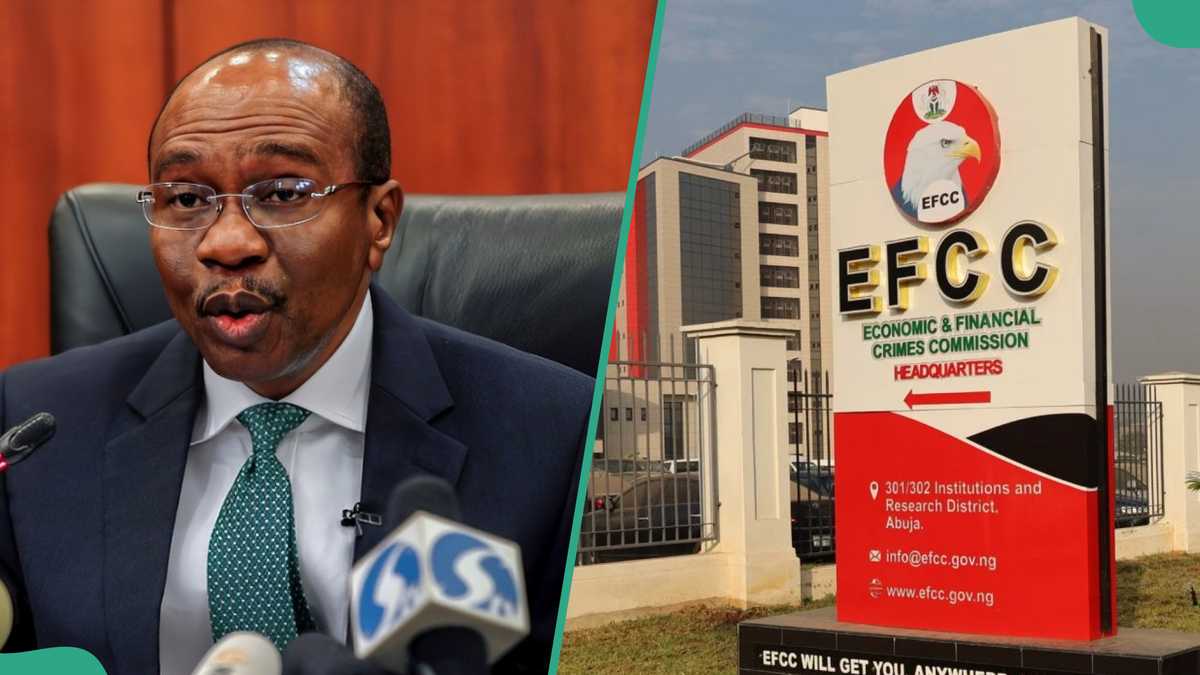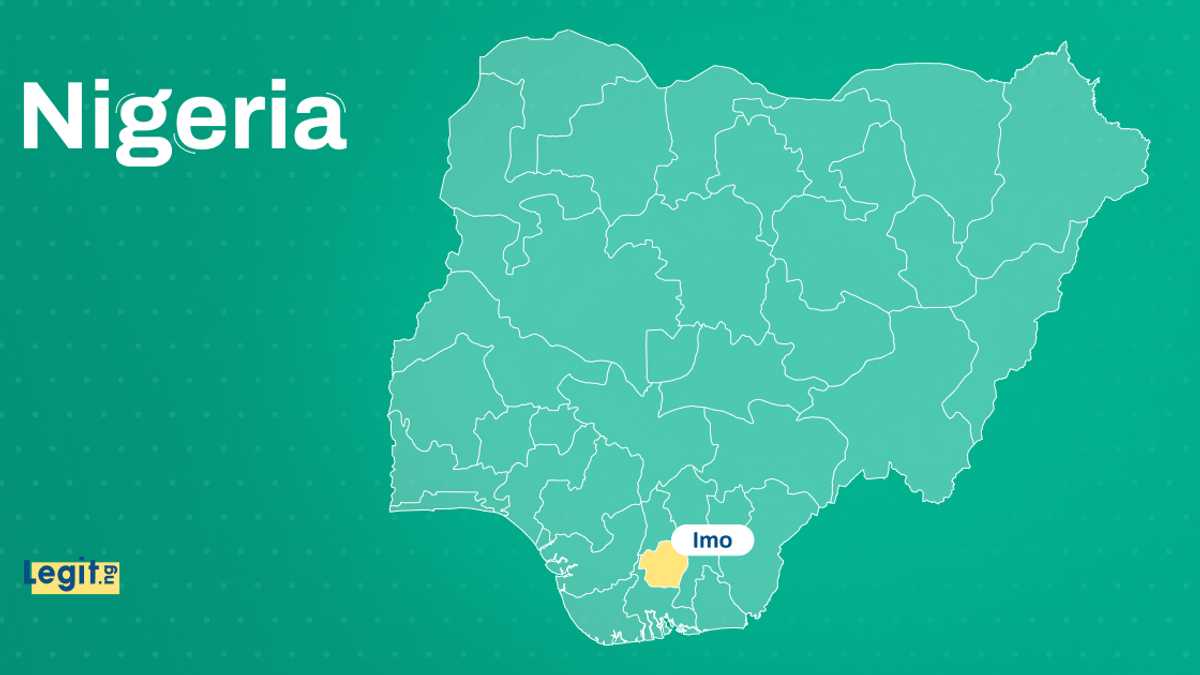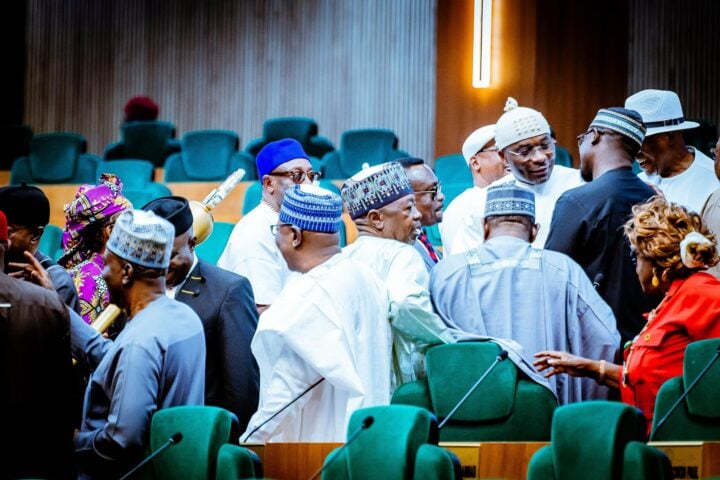Allocation Round 7: potential eligibility changes for fixed-bottom offshore wind (accessible webpage) - GOV.UK
Delivering clean power by 2030 is at the heart of the government’s mission to transform the UK into a clean energy superpower. The CfD scheme is the government’s flagship policy for incentivising new low carbon electricity generating projects in Great Britain. The CfD and its predecessor investment contracts have already delivered around 9 GW of renewable generation, with a further 26 GW contracted to become operational by 2030. The CfD is vital in securing the renewables deployment necessary to deliver clean power by 2030.
The Clean Power 2030 Action Plan[footnote 1], published in December 2024, set out the deployment of renewables required to deliver our 2030 goal. The 2030 Action Plan noted that while all renewables deployment will be important in delivering our ambitions, growth in offshore wind will be particularly critical. The offshore wind market also differs from that of other renewables technologies with a higher degree of market concentration and larger projects. The 2030 Action Plan states we will need to deliver 43-50GW in 2030.
As well as setting out targets for renewables deployment, the 2030 Action Plan provided a roadmap outlining some of the changes to the CfD that could help to deliver the capacity needed. Those proposed reforms for AR7, which were the subject of a consultation from 21 February to 21 March 2025[footnote 2], aim to build on the record-breaking success of AR6 to keep us on the path to delivering clean power by 2030. Success of the next allocation round will be measured by securing the capacity needed to keep on track for 2030 at a competitive price for consumers. The changes we have proposed therefore seek to balance significant renewables deployment to deliver the benefits of a low-cost clean power system, while minimising costs to consumers.
The consultation published on 21 February 2025 attracted a wide range of views on the government’s proposal to relax eligibility requirements for unconsented fixed-bottom offshore wind projects. The government is considering its response to stakeholder feedback on this proposal and will confirm its final decision later this summer, before AR7 opens to applications. In the meantime, and partly in response to stakeholder requests, the government considers it prudent to invite views on that would be required to the to ensure the practical implementation of this policy, should the government decide to proceed with it. We wish to make clear that this consultation is entirely and does not impact the AR7 timeline. It does not represent or imply any government commitment. Should a decision be made to relax eligibility proposals, any contract amendments will be informed by consultation feedback. Engagement with this consultation .
Issued:
27 May 2025
Respond by:
16 June 2025
Enquiries to:
Consultation reference:
Contracts for Difference for Low Carbon Electricity: consultation on potential technical amendments to the CfD scheme to relax eligibility criteria for fixed-bottom offshore wind projects from Allocation Round 7.
Audiences:
The government welcomes responses from anyone with an interest in the proposals. We envisage that the consultation will be of particular interest to developers of fixed-bottom offshore wind projects and supply chain companies that are considering participating in Allocation Round 7 (AR7).
Territorial extent:
The consultation applies to Great Britain only as the CfD scheme does not currently operate in Northern Ireland.
Your response will be most helpful if it is framed in direct response to the questions we have asked, though further comments and evidence are also welcome.
Your response should be submitted online using the dedicated online portal.
or
Email to:
Please include ‘Second AR7 contract consultation’ in your email subject line.
Please do not send responses by post to the department, as we may not be able to access them. When responding, please state whether you are responding as an individual or representing the views of an organisation.
Information you provide in response to this consultation, including personal information, may be disclosed in accordance with UK legislation (the Freedom of Information Act 2000, the Data Protection Act 2018 and the Environmental Information Regulations 2004).
If you want the information that you provide to be treated as confidential please tell us, but be aware that we cannot guarantee confidentiality in all circumstances. An automatic confidentiality disclaimer generated by your IT system will not be regarded by us as a confidentiality request.
We will process your personal data in accordance with all applicable data protection laws. See our privacy policy.
We may share responses to this consultation with Crown bodies, other government departments and/or DESNZ partner organisations to assist our analysis and inform the government’s policy decisions on the proposals in this consultation document.
We will summarise all responses and publish this summary on GOV.UK. The summary will include a list of names or organisations that responded, but not people’s personal names, addresses or other contact details.
This consultation has been carried out in accordance with the government’s consultation principles.
If you have any complaints about the way this consultation has been conducted, please email: [email protected].
The consultation published on 21 February 2025 invited views on a possible framework to enable unconsented fixed-bottom offshore wind projects (OFW) to participate in the CfD process. Views were requested on several potential amendments to the CfD Standard Terms and Conditions and the eligibility criteria for entry to an allocation round.
A summary of responses to this and other proposed scheme changes set out in the February 2025 consultation will be published in a full government response before AR7 opens to applications this summer. With regard to scheme changes for unconsented OFW, slightly more than half of consultation responses on the matter of contract flexibilities agreed that contractual obligations and milestones should be deferred and/or some flexibility permitted for unconsented projects until a planning decision is issued. Several responses said that ‘some’ or ‘a degree’ of flexibility was logical and practical, and would avoid unfair/harsh penalties for factors outside of a developer’s control, such as delayed planning decisions or third party legal challenges (judicial review) against developers’ planning consents.
Comments were also received which raised concerns about creating an ‘unlevel playing field’ or a ‘two tier system’ in which unconsented projects have less strict commitments or penalties, potentially giving them an unfair advantage against consented projects.
Reflecting on these consultation responses, and in the event the policy to relax planning requirements goes ahead, the government’s provisional position is to make reasonable adjustments to the eligibility requirements and CfD contract terms to accommodate the specific circumstances of any unconsented OFW projects that are awarded, and sign, a CfD. The adjustments would only address matters which are genuinely outside the control of an unconsented project and not those which may be viewed as genuine business risks. It is the government’s view that unconsented OFW projects should, in all other respects, be subject to the same contract terms and obligations as consented projects. The potential scheme changes discussed in this document seek to apply that principle.
Demonstrating sufficient progress in the planning system
The eligibility criteria for entry to a CfD allocation round are set out in a document called the Contract Allocation Framework (CAF), which is published before a round opens to applications. The National Energy System Operator (NESO) assesses all applications against the criteria set out in the CAF to ensure that only those applications that satisfy the criteria are allowed to participate in the allocation round.
Currently, all projects wishing to enter an allocation round must submit a copy of their planning consent with their CfD application. As unconsented OFW projects would be unable to meet this requirement, they would instead be required to submit a copy of their planning application along with evidence that their planning application had reached the relevant stage within the planning process. Government sought views on an appropriate threshold date in the February 2025 consultation and will confirm the planning threshold date to apply to applications from unconsented OFW projects in due course if a decision is taken to implement this policy.
Refusal of planning consent
A decision to refuse a project’s planning permission could emerge at any point during the allocation process, including before, during or after an auction is held. The government does not believe it would be right for a project whose planning application has been refused to participate in an auction, given the risk that this could displace a more viable project.
Under Regulation 14(14) of the Contracts for Difference (Allocation) Regulations, the Allocation Framework may specify categories of applications that are not permitted in a given round. The government is considering introducing a new eligibility criterion in Schedule 5 that would disqualify projects from participating if their planning application has been refused.
The government considers that a project whose planning application is refused after it has submitted a CfD application should withdraw from the allocation round. Currently, a CfD application may only be withdrawn before the application window has closed or before the sealed bid window has closed, and at no other time. The government is exploring measures to place a requirement on applicants to notify NESO if their consent has been refused at any stage of the allocation process before the sealed bid window closes.
The to allow NESO to exclude from the auction any project whose planning application has been refused before an auction starts and/or to allow NESO to deem that an application has been withdrawn if their consent is refused before the sealed bid window closes.
The proposal in the February 2025 consultation to permit unconsented OFW projects to enter an allocation round would, if implemented, allow such projects to sign a CfD with the LCCC. It is also possible that a project might receive planning consent during the allocation process and before contract signature. It is not possible to predict accurately when planning consent might be confirmed and therefore whether NESO would always know a project’s consented status when notifying LCCC of successful projects. In addition, it is also possible that a legal challenge against a project’s planning consent might be initiated during the allocation process.
To ensure that LCCC applies the appropriate contract provisions and is made aware of any planning-related circumstances affecting an Unconsented Project at the earliest opportunity, the . This ICP would require a Generator that has entered the allocation round as an unconsented project to provide confirmation of its planning status. Specifically, the Generator must submit evidence, in form and content satisfactory to LCCC and accompanied by a Director’s Certificate, either that: (i) none of its planning consents have been refused; or (ii) in respect of each planning consent that has been refused, either (a) the applicable judicial review (JR) window has not yet passed, or (b) an application for JR has been made within the JR window and is still being pursued. All ICPs must be fulfilled no later than 20 business days after contract signature. LCCC has the right to terminate[footnote 3] a contract if any of the ICPs are not fulfilled within this deadline. Potential drafting of a new ICP requirement for unconsented projects is set out in clause (G) of Part A, Schedule 1 of the accompanying draft Standard Terms and Conditions.
Possible delay scenarios and risks that unconsented projects could encounter
The CfD scheme is designed to operate only with consented, ‘shovel ready’, projects. Generators are ‘on the clock’ to fulfil certain time-bound and spend-related milestones from the moment they sign a contract or otherwise face the risk of contract termination for non-delivery. Unconsented projects may not be able to commit to firm timings until their planning consent is granted, leaving them at a higher risk of delay and contract termination compared to consented projects.
Unconsented projects could face delays for several planning-related reasons, the most likely of which are:
In addition, projects may also have to adapt the scope of their CfD projects post-contract award to comply with planning conditions.
To facilitate the implementation of the potential contract amendments, the following new definitions may be included in the CfD contract:
The most important delivery milestone that a generator has to fulfil in the early stages of a contract is the Milestone Delivery Date (MDD). The MDD requires the generator to demonstrate significant progress by providing evidence to the Low Carbon Contracts Company (LCCC) either that they have spent a minimum of 10% of total project pre-commissioning costs (which could be several hundred million £s in the case of OFW projects), or have signed contracts for the supply and/or installation of material equipment, which must always include turbines in the case of wind projects. The generator must fulfil at least one of these requirements by no later than 18 months after contract signature or face the risk of contract termination.
Given the significant spend implications, it is highly likely that a project will need to have reached Financial Close in order to fulfil its MDD obligations. Developers may be unwilling to take this step until planning consent is granted, or confirmed following a judicial review against a decision to grant the developer planning consent, potentially putting the project at risk of default and termination if planning consent is delayed.
The two other key milestones are the Target Commissioning Window (TCW) and Longstop Date. The TCW is the 12-month period during which the generator can commission its project while maintaining the full value of its payment term. Subsidy is withheld for each day after the end of the TCW on which the project is not generating under contract terms (this is known as ‘contract erosion’). The Longstop Date is the date by which projects must be generating under their contract or risk contract termination. The Longstop Date for fixed-bottom offshore wind projects is 24 months after the end of the TCW. These two milestones arrive several years into the construction phase of an offshore wind project.
CfD generators may be able to use existing force majeure[footnote 4] provisions in the CfD contract to seek temporary time relief from delays to the project which are outside of their control, potentially including planning-related delays. A generator would be entitled to an extension of the time to achieve certain contract milestones commensurate with the time delay to its project caused by Force Majeure, subject to meeting certain mitigation requirements. It would also be relieved from liability and deemed not to be in breach of contract for any failure or delay directly attributable to Force Majeure. The generator’s obligations to fulfil contractual milestones would resume once the force majeure event has passed.
Possible amendments to the MDD, TCW and Longstop Date definitions
The government considers that the current force majeure provisions in the CfD contract provide a high level of protection against project delays due to circumstances that are outside a generator’s control. However, these provisions have not been tested in all circumstances and so it is possible that there may be some uncertainty that a particular delay comes within the scope of force majeure.
The statutory deadlines for challenging the grant or refusal of a planning consent in respect of an OFW project is six weeks in England and Wales[footnote 5] and three months in Scotland[footnote 6]. We consider that it may be convenient to express these timeframes in a new definition of ‘JR Window’. Illustrative drafting of such a definition and of a possible new limb (D) in the definition of ‘Milestone Delivery Date’ are shown in the draft CfD Standard Terms and Conditions published with this consultation.
The government is considering the different planning regimes across English, Welsh and Scottish jurisdictions and will make the necessary amendments ahead of final publication.
The government considers that a generator is most likely to request an extension to the MDD in the first instance as this will be the first milestone to be impacted by a planning-related delay. It is possible that a generator may request an extension to its TCW and Longstop Date at the same time as it requests an extension to the MDD. However, planning-related delays to the TCW and Longstop Date are likely to be the result of a delay to the MDD, so it may not be possible for LCCC to determine the quantum of delay that it should grant to the TCW and/or Longstop Date until the full extent of a delay to the Project is known. An extension to the TCW and/or Longstop Date may not be necessary where the initial planning-related delay is relatively short. It would be for LCCC to decide whether to grant an extension to any or all of these milestones based on its understanding of the circumstances and any evidence provided by the generator to support an extension request. The onus would remain on the generator to request an extension to one or any of these milestones. The government is open to considering amendments to the definitions of TCW and Longstop Date to allow milestone extensions where delays to the MDD are caused by planning-related delays, as outlined above.
Interaction Between Target Commissioning Date and Milestone Relief for Unconsented Projects
Unlike the MDD, TCW and Longstop Date, the Target Commissioning Date (TCD) is a fixed date and cannot be extended. The government wishes to clarify that a delay to the MDD, even where relief is granted, does not imply a corresponding delay to the TCD.
The government proposes, however, that if a generator chooses to meet the Milestone Requirement using the Project Commitments route, and has received an extension due to planning delays, they will have up to the TCD – plus the number of days by which the MDD is delayed due to planning consent delays – to place an order or finalise a supply agreement for the Material Equipment. This applies where a generator is an unconsented project who has been granted relief and has acted in accordance with the extended timeframe contemplated under paragraph (D) of the MDD definition.
Contract termination where planning consent is refused
Without planning consent, a project would be unable to progress to construction and commissioning and would eventually (after 18 months or so) face contract termination for non-delivery when it reached its MDD. Allowing a generator to obtain time relief if planning consent is refused would serve no useful purpose, except possibly where the generator has chosen to commence legal proceedings within the JR Window to challenge a planning authority’s decision to refuse the grant of consent (see potential drafting changes to the MDD definition above – paragraph (c)). . The termination right could arise once refusal of planning permission is confirmed, and the generator confirms to LCCC that it does not intend to challenge the planning authority’s decision, or after the conclusion of any legal challenge taken by the generator against the planning decision upholds the original decision to refuse.
Milestone Requirement to demonstrate an Applicable Planning Consent
As indicated above, developers are unlikely to reach Financial Close in order to fulfil their MDD obligations until planning consent has been granted or confirmed following a judicial review against a decision to grant the developer Applicable Planning Consent. It is therefore unlikely that an unconsented generator would seek to fulfil a Milestone Requirement at MDD without first having obtained its Applicable Planning Consent or in circumstances where their application for an Applicable Planning Consent was either subject to a judicial review or had been refused. To reinforce this, that:
Illustrative contract drafting of a new Milestone Requirement has been added to Condition 4.1 in the draft Standard Terms and Conditions accompanying this consultation. Failure to fulfil this Milestone Requirement would, as is currently the case, confer the right, though not the obligation, on LCCC to terminate a generator’s contract.
Generators are currently obliged to provide the LCCC with specific information in respect of several of the CfD’s provisions to facilitate the efficient and effective operation of the contract. LCCC may also request certain information from generators for the same broad reasons. The government considers it would be necessary to create new information requirements to support the operation of the potential contract changes in respect of unconsented projects outlined in this consultation, for example, to help LCCC determine when any extension granted to the MDD can be closed or may need to be further extended. The government is minded to insert requirements on unconsented projects to notify the LCCC of the following:
Projects that secured planning consent before applying for a CfD will have had an opportunity to reflect any planning conditions in the scope of their CfD application, including the capacity which they intend to commission if awarded a contract. Unconsented projects in contrast will not know at the point of application, and probably not until their planning consent is issued, what planning conditions may be imposed on their projects and the adjustments they may have to make post-contract award to comply with them.
One approach could be to confirm that unconsented projects should use their existing Permitted Reduction rights to accommodate changes requiring an adjustment to their contracted capacity (i.e. the capacity awarded to a successful project following an auction) to comply with planning conditions. Permitted Reduction allows a CfD generator to reduce their contracted capacity by up to 25% before the MDD. This may require minimal, or potentially no, drafting changes to the CfD contract terms.
However, specific provisions allowing unconsented projects to make adjustments for planning conditions may be justified to put them on a level playing field with consented projects. The CfD currently makes provision for circumstances which may arise that mean the Initial Installed Capacity Estimate stated by the generator in their CfD application may prove unattainable for various reasons outside of the generator’s control and which the generator could not reasonably have foreseen when they submitted their CfD application. This is known as a Relevant Construction Event. A similar provision could be created for unconsented projects to comply with unforeseen planning conditions which might require a reduction in the project’s contracted capacity.
Illustrative drafting of a potential new provision, referred to as a ‘Relevant Planning Restriction’ (RPR) for the purposes of this consultation, along with a potential definition (see list of ‘New Definitions’ earlier in this consultation document), is included in the draft Standard Terms and Conditions published with this consultation. The key elements of the Relevant Planning Restriction would include:
Question 19: Please let us have your views on the illustrative contract drafting for the potential new flexibility referred to as Relevant Planning Restriction, and the associated definition, in the accompanying Standard Terms and Conditions.
Question 20: Are there other types of planning condition that you think may require reasonable adjustments to be made to the contract terms to accommodate them? Please let us know and provide arguments for any additional adjustments that you suggest.
The government believes that the grant, refusal, or variation of an unconsented project’s planning application does not constitute an unforeseeable event by which an unconsented project can receive compensation. The government is considering inserting an additional limb (M) into the definition of ‘Foreseeable Change in Law’ to exclude compensation for unconsented project for the grant, refusal or variation of planning consent. These instances will be treated as foreseeable development risks, as is the case for consented projects.
Question 21: Do you agree with the government’s proposal to amend the definition of Foreseeable Change in Law to include a new limb (M) to exclude compensation for unconsented projects in cases where planning consent is granted, refused or varied?
The government’s February 2025 consultation invited views on whether unconsented OFW projects should be allowed to leave their contracts early without penalty (i.e. without application of the Non-Delivery Disincentive (NDD)[footnote 7]) if consent is delayed beyond a certain date or a project is delayed by a legal challenge to its planning consent. The response to this proposal was mixed, with some stakeholders supporting the creation of a ‘no fault’ termination right while others opposed.
The February consultation said that depending on consultation responses and the government’s analysis of the current NDD rules, it may be necessary to amend regulations to disapply the NDD in these circumstances. The government continues to assess whether the current NDD is appropriate. If the government was minded to alter the NDD provisions, this would require a change to regulations, which is not possible before AR7 opens this summer. Potential applicants are therefore reminded that termination of contract before the MDD for any reason, including by mutual consent, would count as ‘non-delivery’ under CfD regulations. Projects to which the NDD applies would be excluded from participating in the next two allocation rounds for which they are eligible.
Several stakeholders requested clarification in their responses to our February consultation on how the new grid connection reforms will interact with AR7. Ofgem announced its final decision on grid reform in April 2025, after our February consultation closed. The role out of the first tranche of accelerated grid connection offers will overlap AR7, so we are examining how to ensure that the two processes interact smoothly. We are grateful to those stakeholders who submitted comments about the grid reforms. In view of Ofgem’s decision on the policy, we would welcome any further stakeholder feedback on this issue, including whether any essential changes may be needed to the CfD scheme to accommodate the new grid connection reforms.
Question 22: Please let us have your thoughts and suggestions on matters or adjustments that we should take into consideration in the CfD application process and contract provisions to ensure the smooth interaction between the grid connection reforms and the CfD scheme.
1. Do you agree with the proposed amendment to the CAF to introduce a new eligibility criterion in Schedule 5 that would disqualify projects from participating in an allocation round if their planning application has been refused? If you disagree, please tell us why.
2. Do you agree with a requirement on applicants to notify NESO if their consent has been refused at any stage of the application process before the sealed bid window closes? If you disagree, please tell us why.
3. Do you agree with the government’s ‘minded to’ proposal to amend the Contract Allocation Framework to require projects whose planning applications have been refused to withdraw at any stage of the allocation process before the sealed bid window closes? If you disagree, please tell us why.
4. Do you agree with the government’s ‘minded to’ proposal to create a new ICP requiring unconsented OFW projects to confirm their consented status? If you disagree, please tell us why.
5. Do you agree that the scenarios outlined above are the most likely delays and risks that an unconsented OFW project could experience due to planning delays in the context of the CfD? Please let us know if you think there are other scenarios that should be taken into account and why.
6. Do you agree with the proposed definitions to be added to the CfD Standard Terms and Conditions published alongside this consultation? If you disagree, please tell us why and support your answer with evidence.
7. Do you consider that the existing Force Majeure provisions in the CfD contract would offer adequate protection to unconsented OFW projects that experience the planning-related delays described above? If not, please tell us why.
8. Do you support amending the definition of ‘Milestone Delivery Date’ for unconsented OFW projects affected by planning delays as outlined above? If you disagree, or wish to suggest different or additional provisions, please let us know and tell us why.
9. With regard to the illustrative drafting of a new limb (D), do you think it would be appropriate to place an obligation on an unconsented generator to progress their planning application as a condition of being able to access an extension to their MDD for a planning delay? If not, please tell us why.
10. Do you consider it necessary to amend the definitions of TCW and Longstop Date, in addition to the MDD definition, to allow LCCC to grant time extensions to unconsented OFW projects for planning-related delays? If you disagree, please let us know and tell us why. If you wish to suggest specific extension provisions for TCW and Longstop Date not addressed in the MDD definition, please let us know and why.
11. Do you agree with the government’s proposal to allow unconsented projects, who have elected to meet the Milestone Requirement at the MDD via the Project Commitments route, additional time – up to the TCD plus the duration of any planning-related MDD delay – to order or finalise a supply agreement for Material Equipment?
12. Do you agree with the government’s ‘minded to’ proposal to create a new right for LCCC to terminate projects whose planning consent is refused? If you disagree, please tell us why.
13. What are your views on whether the termination right should take effect (a) once a planning consent is refused (b) once any court proceedings have concluded, or (c) in the event that court proceedings quash a planning authority’s decision to refuse a planning application, until any action ordered by a court has been completed?
14. Do you agree with the government’s ‘minded to’ proposal to create a new Milestone Requirement for unconsented OFW projects as outlined above? If you disagree, please tell us why.
15. If you would support the creation of the new Milestone Requirement, do you agree with how this has been drafted in the Standard Terms and Conditions published alongside this consultation? Please let us have your suggestions for any changes.
16. Do you agree with the information requirements that the government is minded to introduce as listed above? If not, please let us know and why. If you have any suggestions for alternative or additional information requirements, please tell us, with your justification.
17. Please tell us whether you consider that unconsented projects should use their existing Permitted Reduction rights to accommodate changes requiring an adjustment to their contracted capacity to comply with planning conditions. Please give reasons for your answer.
18. Do you agree that specific provision should be made in the contract to allow unconsented projects to accommodate essential capacity reduction where needed to comply with planning conditions? If not, please tell us why.
19. Please let us have your views on the illustrative contract drafting for the potential new flexibility referred to as Relevant Planning Restriction, and the associated definition, in the accompanying Standard Terms and Conditions.
20. Are there other types of planning condition that you think may require reasonable adjustments to be made to the contract terms to accommodate them? Please let us know and provide arguments for any additional adjustments that you suggest.
21. Do you agree with the government’s proposal to amend the definition of Foreseeable Change in Law to include a new limb (M) to exclude compensation for unconsented projects in cases where planning consent is granted, refused or varied?
22. Please let us have your thoughts and suggestions on matters or adjustments that we should take into consideration in the CfD application process and contract provisions to ensure the smooth interaction between the grid connection reforms and the CfD scheme.
The government wishes to make it clear that this consultation is entirely without prejudice to any final policy decision. The purpose of this consultation is solely to gather views on potential technical amendments regarding the eligibility criteria for fixed-bottom offshore wind within the CfD scheme. It does not represent, imply, or pre-empt any commitment or conclusion by the government.
Should the government decide to proceed with relaxing eligibility, any resulting amendments to the CfD contract terms will be informed by the feedback received through this consultation. However, this consultation should not be interpreted as an indication that such a policy change will occur.
A formal government response will be published in due course, setting out the final decision on whether to proceed with the proposed eligibility relaxation for fixed-bottom offshore wind in AR7. This decision will be made independently of the consultation and will be announced prior to the opening of AR7 this summer.













